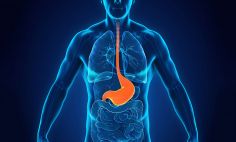Heartburn is a burning feeling in your chest or throat. Despite its name, heartburn actually has nothing to do with your heart.
Who gets it?
More than 60 million Americans experience heartburn at least once a month. Some studies suggest that more than 15 million Americans experience heartburn symptoms each day.
What causes it?
There are several conditions that can cause heartburn, but most often it's caused by acid reflux or a more chronic form of acid reflux called GERD, or gastroesophageal reflux disease.
Eating certain foods, drinking alcohol, and some medications can make heartburn more likely.
What is acid reflux?
When you swallow food, it passes from your throat, through your esophagus, and then through an opening in your stomach.
This opening usually closes once the food passes through. If it doesn't, acid from your stomach may enter through the opening and travel the wrong way—back into your esophagus and to your throat. This is called acid reflux. The opening can occur sporadically after a meal leading to multiple reflux events.
Is heartburn serious?
Occasional heartburn isn't a cause for concern. But if heartburn occurs regularly, interferes with your daily routine, or is caused by GERD, it could damage your esophagus or lead to cancer.
When heartburn is frequent or it leads to complications, it is categorized as GERD.
What are the symptoms?
- Burning in the chest after eating or at night
- Pain that worsens when lying down or bending over
- Bitter or acidic taste in the mouth
What makes heartburn worse?
Being pregnant or overweight can make you more likely to have heartburn. There are also certain foods and drinks that can trigger heartburn including:
- Spicy foods
- Acidic foods, like those with citrus (oranges or lemons) or those with tomatoes (marinara sauce)
- Alcohol
- Caffeinated beverages, like coffee and tea
How is it diagnosed?
If you're experiencing heartburn, make sure to track your symptoms. For example, how often does it happen in a day? Does it happen after eating? You can bring this list to your provider to help make a faster and better diagnosis.
After discussing your symptoms and medical history with you, your provider can usually diagnose heartburn easily.
What are the treatment options?
If you have heartburn, your provider may prescribe over-the-counter antacids, which may come in a chewable tablet. They might also recommend prescription drugs such as H2 blockers or proton pump inhibitors, which reduce how much acid your stomach makes.
Providers may also recommend lifestyle changes, like losing weight and quitting smoking, which can increase stomach acid production. Other changes often include reducing stress, exercising more, avoiding food around bedtime, raising the head of the bed about 6 inches, and eating more high-protein, low-fat meals.
What if medication or lifestyle changes don't help?
Your provider may request more testing if lifestyle changes and medication did not help. These tests include a pH test to check for acid in your esophagus or an endoscopy. This test uses a small tube with a camera and light to see inside of your digestive tract and spot any issues.







